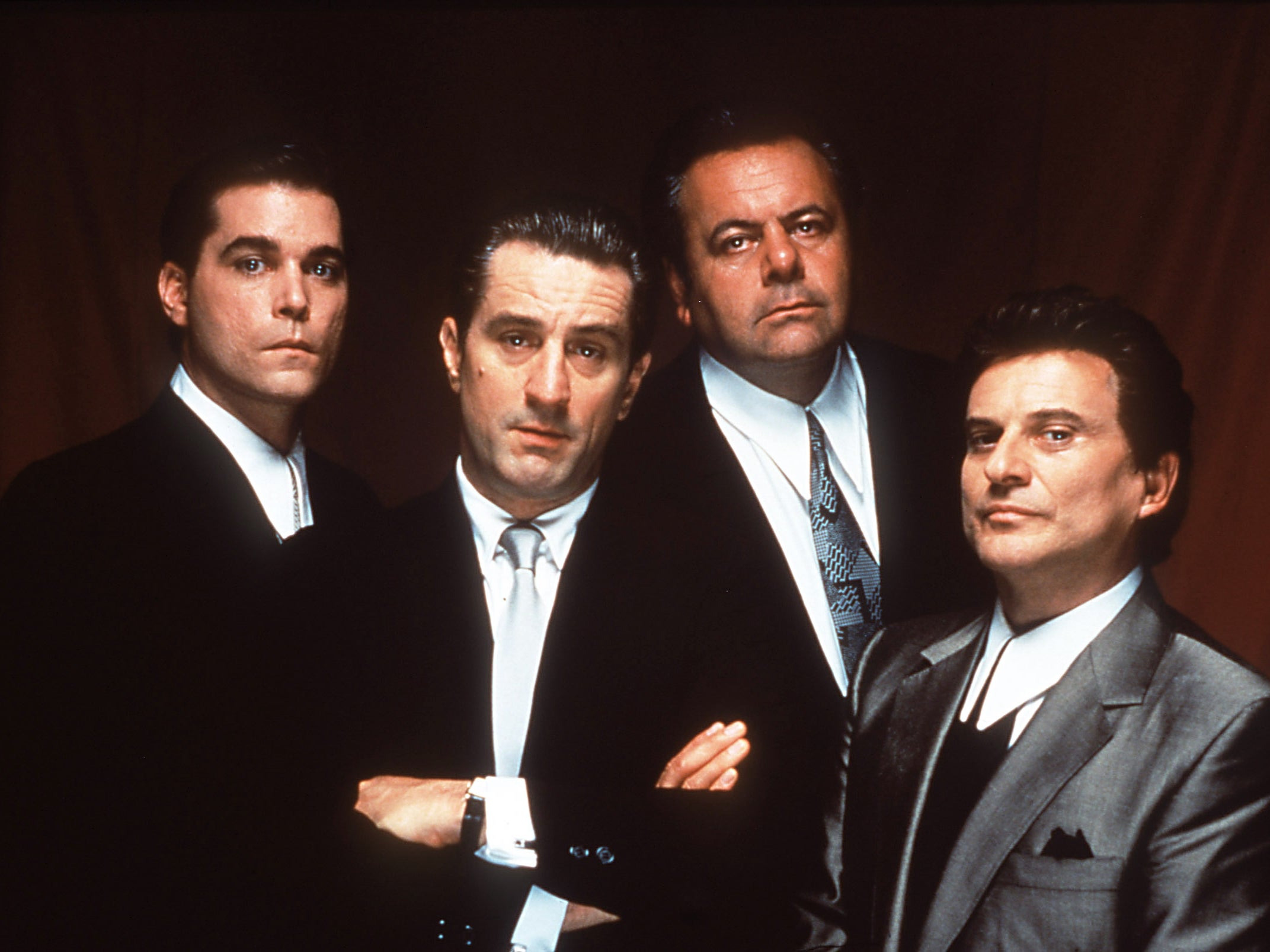The Independent's journalism is supported by our readers. When you purchase through links on our site, we may earn commission.
Goodfellas labeled with ‘cultural stereotypes’ warning on streaming service
AMC says the film ‘includes language and/or cultural stereotypes that are inconsistent with today’s standards’
Martin Scorsese’s mobster classic Goodfellas has received a content warning from AMC Networks over “language and/or cultural stereotypes”.
Viewers who watch the 1990 film on AMC’s television channel or on their streaming service AMC+ will first see a message that reads: “This film includes language and/or cultural stereotypes that are inconsistent with today’s standards of inclusion and tolerance and may offend some viewers.”
In a statement to the New York Post, AMC said that they first added the content warning to the film four years ago: “In 2020, we began adding advisories in front of certain films that include racial or cultural references that some viewers might find offensive.”
Michael Franzese, a one-time captain of the Colombo crime family, told the Post he was amused by the note. “We don’t need anyone protecting mob guys,” he said. “It’s crazy.”
Bo Ditel, a former NYPD officer who also played a policeman in Goodfellas was more put out, saying: “The f***ing political correctness has f***ing taken everything away. This is how life was back then. It was not a clean beautiful thing. You can’t cleanse history. If you want to tell true history, you gotta tell it the way it is.”
The warning that appears before Goodfellas is more detailed than the one that appears before Francis Ford Coppola’s 1972 mob film The Godfather, which merely receives a standard “viewer discretion” warning covering “brief nudity, strong language and intense violence”.

Goodfellas is widely regarded as one of the greatest gangster films ever made. In a piece marking its 30th anniversary for The Independent, Ed Power wrote: “Goodfellas, it hardly needs pointing out, is a masterpiece. Robert De Niro and Joe Pesci are never better as the grizzled mob mentors to Ray Liotta’s gangster newcomer, Henry Hill (De Niro had fretted he was too old for his part, which was offered originally to John Malkovich). The violence is shocking, the expletives never-ending. Goodfellas would set a new record with its 300 f-bombs – a total Scorsese himself would surpass with 1995’s spiritual sequel Casino. But it is also uproarious to watch and often hilarious.
“That is arguably why it eclipses The Godfather Parts One and Two and Sergio Leone’s Once Upon a Time in America. These are important, austere gangster epics, caught up in their own tragic grandeur. Goodfellas is, by contrast, a hoot, a caper, a romp. Many of its best scenes are essentially comic. Morris ‘Morrie’ Kessler’s gonzo wig commercials. The exasperation of Henry’s mob pals as he separates from his wife. Hill’s cocaine-fuelled paranoia in the movie’s closing third. Scorsese understood the best way to reel in an audience into this dark and unpleasant world was with jokes and absurdist riffs.”
Join our commenting forum
Join thought-provoking conversations, follow other Independent readers and see their replies
Comments
Bookmark popover
Removed from bookmarks